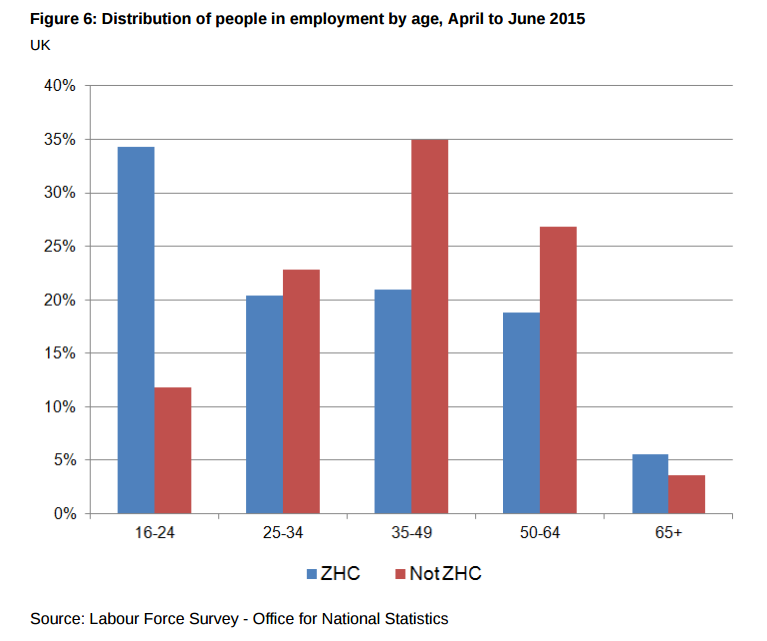
Nearly 750,000 people now rely on zero-hours contracts as their main source of income, a 19% increase on the same figure from last year, according to figures released today by the Office for National Statistics.
More than 40% of those on zero-hours contracts want more work but are held back through their contracts, which do not give staff a set number of hours or income each week.
The TUC general secretary, Frances O'Grady, called the figures a "stark reminder of Britain's two-tier workforce," adding that "we need a stronger and fairer recovery that works for everyone, not one that forces people to survive off scraps of work."
Zero-hours contracts have been a contentious political issue in recent years as companies have been able to take advantage of their flexibility.
In April former Labour leader Ed Miliband said, "If it's not good enough for us, it's not good enough for you. It's not good enough for Britain."
Work and pensions secretary Iain Duncan Smith said earlier this year that zero-hours contracts should be renamed "flexible hours contracts" because "they are taken by people who want that flexibility."
This contrasts with the newly released figures, which show that 41% of people on zero-hours contracts want to work more hours, whether that's in their current role or in a new job entirely.
Laura Gardiner, senior policy analyst at the Resolution Foundation, said the contracts contribute to "deep insecurity".
"Alongside reduced employment rights, the potentially irregular nature of earnings they provide makes it hard to budget and plan ahead," she said.
The new figures show that those on zero-hours contracts work, on average, 10 hours less per week than other workers.
However, the contracts do give flexibility to those who want to earn money on a more temporary basis, such as students.
The new figures show that young people and women are particularly affected.

Young people under 25 years old are two and a half times more likely to be on a zero-hours contract while women are 25% more likely to be on such a contract than men.
There are also far more people who might be the main wage-earners now on zero-hour contracts. Compared with a year ago, there has been a 35% increase in the number of 35-49-year-olds on zero-hours contracts.
